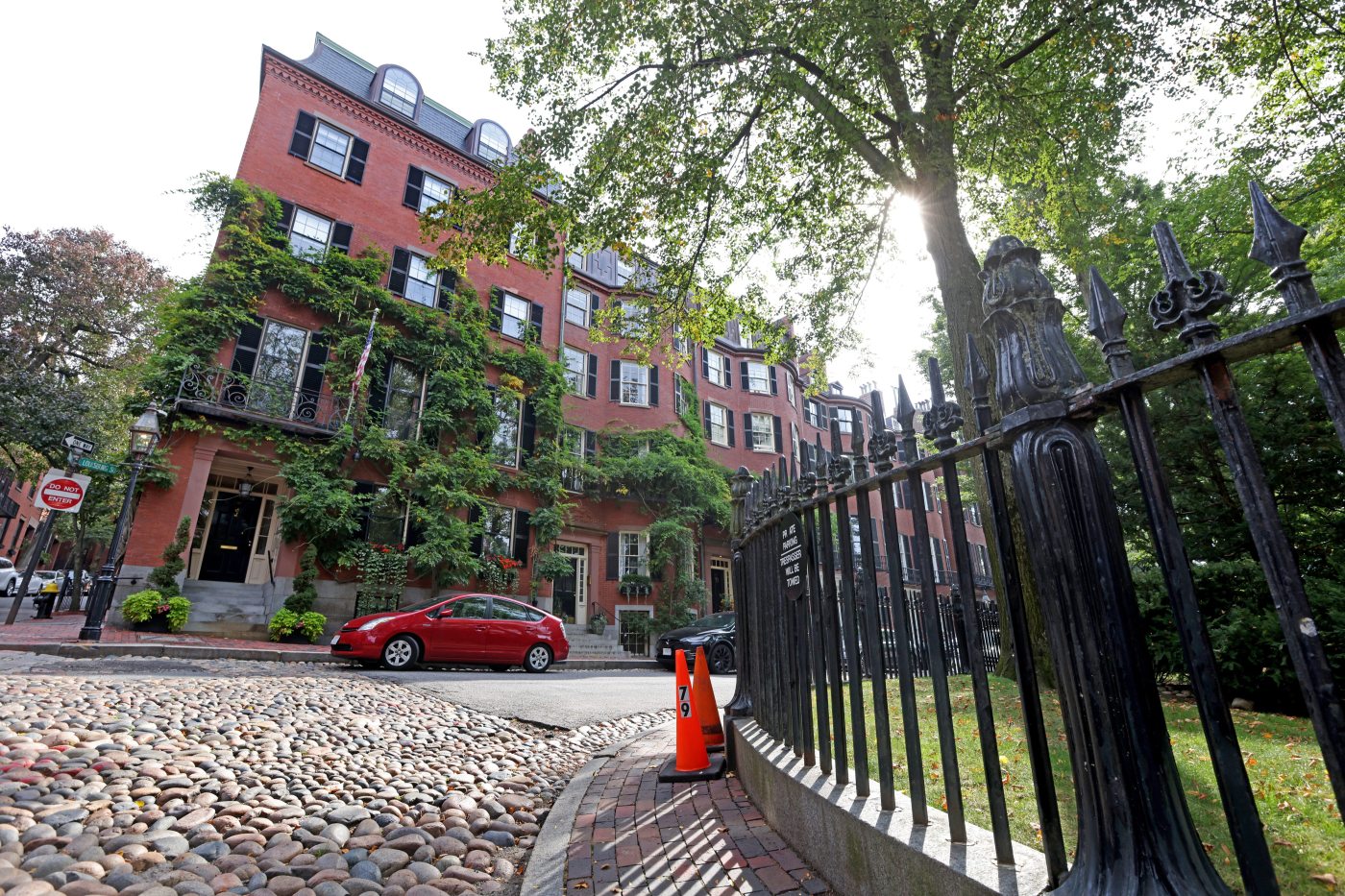
Boston mayor’s tax plan would give elite homeowners like John Kerry an envious break
Failed presidential candidate John Kerry’s multi-million-dollar home will have an estimated tax break of $22,721 next year should Mayor Michelle Wu’s plan to shift more of Boston’s tax burden onto commercial properties pass the state Legislature.
The tax savings is based on an analysis of city data conducted by critics of the mayor’s pending legislation that shows Boston’s wealthiest homeowners — like former U.S. senator and jet-setting climate czar Kerry, whose Beacon Hill home is assessed at north of $17 million — would benefit most from the plan.
The data show, for example, that Kerry’s property tax bill for his 19 Louisburg Square mansion would be $202,318 next year without the mayor’s legislation, and $179,597 if the plan were to take effect, for an estimated tax savings of $22,721. The numbers are based on the residential exemption being applied. The tax savings would increase to $23,172 without the exemption.
“The mayor’s asking the commercial class to subsidize the entire residential class, regardless if they actually need it,” a source familiar with and critical of the mayor’s plan who asked not to be named told the Herald. “I’m sure there are households that need it, but there’s plenty that don’t, and they’re getting all the benefit of the subsidy and tax paid by the commercial class.”
Critics behind the latest analysis say that if the plan were enacted, one-, two- and three-family homes and condominiums with assessed values under $1.5 million stand to save on average about $400 per year in property taxes.
High-value condo and single-family properties with assessed values of more than $5 million will have their property taxes cut, in some cases, up to nearly $50,000, on the backs of a struggling commercial sector, critics told the Herald.
The data show that the tax savings increase as the assessed home value does, meaning multi-million dollar properties, by way of having more expensive homes that generate higher tax bills, will see higher tax breaks under the mayor’s plan.
Critics are pushing an alternative plan proposed by two city councilors, Ed Flynn and Erin Murphy, that the councilors say would provide targeted tax relief to homeowners who would be most burdened by a hefty tax hike, without burdening the commercial class.
That alternative, introduced by the councilors last month, would target $45 million in city funds over three years — which Flynn and Murphy said would provide tax relief to 20% to 30% of Boston home values assessed at or below $1.5 million.
The mayor’s legislation seeks to tax commercial properties beyond the 175% limit allowed by state law, by shifting more of that burden away from the residential sector. The bill passed by the House and stalled thus far in the Senate would allow for the tax shift to increase up to 200%, but a compromise struck by the mayor and Democratic House leadership would cap it at 190%.
The data being circulated by critics is based on a hypothetical shift of 192.5%, which was used by Boston Municipal Research Bureau in a watchdog report it released on the mayor’s plan last May.
In the report, the Research Bureau estimated that the average single-family tax bill in the city would rise by $910 without the legislation, a 16.5% increase, and by $138, a 2.5% increase, if the plan were to take effect, for a savings of about $772 for the average city homeowner.
The average-single family homeowner, with an assessed property value this year of $837,827 and tax bill of $5,522 with the residential exemption, per city data, is the group the Wu administration has consistently cited while pushing for the legislation — that the mayor says will shield homeowners from the “shock” of a double-digit tax increase, which Wu has put as high as 33% next year.
Related Articles
Boston city employee accused of swindling home from elderly uncle heading to trial for separate case
Fed-up Flynn wants his photo taken down, Boston City Council prez says not on her watch
Boston City Council urged not to be like San Francisco with housing policies
Boston opioid overdose deaths drop after rising last year: ‘On the right track’
Boston Mayor Wu fundraiser invite ‘mistake’ raises campaign finance law violation questions
That scenario, proponents of the mayor’s plan say, could push some residents out of their homes, and be passed from landlords to tenants through higher rents. Critics of the plan make a similar argument for the commercial sector, saying that the higher tax burden shifted to those properties under Wu’s bill would most harm small businesses, by way of higher costs being passed down to those tenants.
The mayor’s office on Friday pushed back on assertions that her plan would disproportionately benefit the city’s wealthiest homeowners, or those with properties assessed at more than $5 million, as the latest data analysis suggests.
Citing fiscal year 2024 data, the mayor’s office said 99% of single-family homes, condos, and two- and three-family buildings, totaling 131,007 homes in the city of Boston, are valued less than $4 million. There are 88,887 single-family, two-family, three-family, condos, and apartments that are valued below the value of the average single-family home.
The mayor’s office also pushed back on criticism that her plan would harm businesses. For a commercial property valued at $5 million in FY24, with a 9% value decline in FY25 with the proposal’s maximum shift, those owners would see their taxes go down by $679. Without the proposal, the taxes go down $8,414.
“The city’s residential tax relief proposal applies proportionally to all residential property, as state tax laws require,” a Wu spokesperson said in a statement. “The proposal will protect residential taxpayers from drastic spikes and create stability for all taxpayers, while also protecting renters from potentially facing an increased cost of rent.
“Without legislative action, residents could see a significant spike in taxes while commercial properties receive a massive tax break,” the spokesperson added. “With this legislation, the city will stabilize tax bills for a more modest decrease in commercial taxes and similar changes to residential taxes as previous years. The city plans to share more information about the latest citywide projections with neighborhood leaders next week.”
John Kerry could see a tax break on his M-plus city home if the mayor’s plan passes. (Herald file photo)
John Kerry’s $17 million home at 19 Louisburg Square on Beacon Hill. (Matt Stone/Boston Herald)
One Dalton tower is also home to multi-million dollar properties. (Libby O’Neill/Boston Herald)


